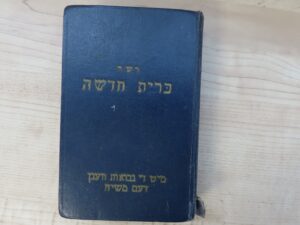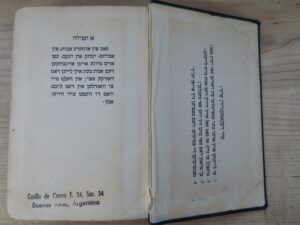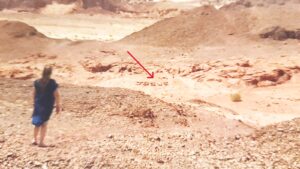“WHAT IS GOING TO HAPPEN HERE?”
Last year on Purim (March 7th, 2023), an announcement was made that there would be a historic global prayer initiative for Israel which would take place in May. By all accounts, this global prayer initiative, called “The Isaiah 62 Fast\Global 21 Day of Prayer for Israel”, was unprecedented: over five million believers from around the world committed to stand in prayer for Israel during that time.
One of my fellow worshippers at Tiferet Yeshua who had also heard about this prayer movement for Israel said to me, “What is going to happen here that God is raising up so much prayer for us right now? It’s kind of scary. There is definitely a reason that we are going to need this prayer.” If we had known what was really in store for us exactly 7 months later…frankly, we would have been terrified.
That horrific tragedy would strike our people on October 7th, the dimensions of which we are still living out today. However, as we gathered together as a congregation on zoom that day to seek the Lord, we recalled a prophetic word which was shared in our midst less than one month before and realized with awe that God had been lovingly preparing us for this moment.
GOD IS SPEAKING TO US AND TO YOU
The idea of suffering and enduring persecution is terrifying and naturally something one wants to avoid. This is perhaps one of the main reasons the theology of pre-tribulation rapture is so largely embraced and advanced (Tiferet Yeshua leadership does not hold to a pre-tribulation rapture of believers). The point here is not to argue the theology of those differing positions. What I want to convey is that, here in Israel, we are experiencing a tribulation: a condensed, microcosm of the worst of human horrors (sadistic rape, torture, murder, captivity in abominable conditions) which has then been followed by a growing chorus of hate, blame and offence from many in the world.
God, however, in His mercy, spoke to us before it happened. Even though we had no idea how quickly and how literally the prophetic word would come to pass, it continues to be an encouragement and guide to us as we navigate this difficult, frightening and often confusing situation. This prophetic word strengthened us in the knowledge that God is sovereign, that He is motivated by perfect love for us, and that He will clearly speak to us inorder to prepare us beforehand.
In this tribulation, we are discovering how incredibly present He is. We are also discovering how this tribulation is causing so many frivolous pleasures and worries of the world to simply evaporate. It is causing His Word and promises to burn within us. We do not see explicit promises in the Word of God to take us out of tribulation: on the contrary, Yeshua promises that we will have tribulation in the world (Jn. 16:33). However, the Word promises that God will be a very present help in tribulation (Ps. 46:1). Discovering that through experience is gold refined by fire!
A WORD FROM THE LORD
In September of 2023, Oren, a greatly gifted teacher at Tiferet Yeshua, submitted a word he had received from the Lord to Gil, our lead pastor. Oren, a truly humble and sincere man of God, explained to Gil that he had never heard a “word” from the Lord before and, furthermore, that nothing like this had ever happened to him. Oren described how on the evening of Rosh Ha Shanah he experienced an overwhelming presence of the Holy Spirit and was moved to write words which he felt were barely His own.
After prayerfully considering the word and sharing it with our elders, Gil felt that Oren needed to share it with the whole congregation at the next service which was the service right before Yom Kippur (the Day of Atonement). The timing was perfect, of course, because it was God’s timing: that service was dedicated to standing before God in humble repentance and intercession for our people.
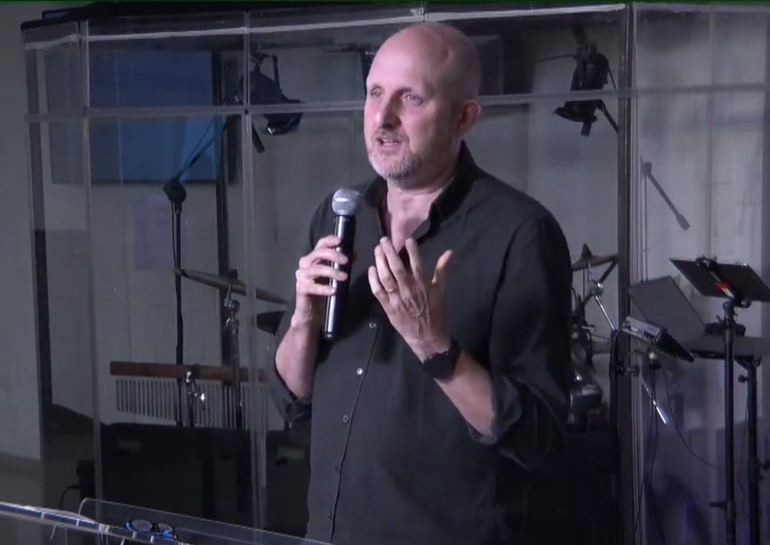
Humility and the Fear of the Lord
Tiferet Yeshua elder David Trubeck who led the service on the day that Oren shared this word asked everyone to listen to it in a spirit of the fear of the Lord. In the same way, may you all who read this word consider it in the same spirit. The original word was received and shared in Hebrew, and some portions of the word are specifically for the Jewish believers in the Land. However, I translate here the portions which I feel God wants shared and through which, I believe, He would speak to and encourage you.
DVAR HA RUACH – THE WORD OF THE SPIRIT
The Jews are my people, the apple of my eye, I will never forsake them because I am faithful.
I returned them to their Land to prove My faithfulness and to fulfil my plan of redemption for them. Right now, they are discovering that without Me there is nothing that connects them one to another. What connected them in past was the hope inside and difficulties from without.
Pray for them always.
Pray for your people in order that their ears may be unstopped and the eyes of their hearts may be opened
And they will see Me, the One whom they have pierced.
Their love for me is trapped in a shell of religion.
The day is near when that shell will crack, and they will understand that there is no more need for it:
“But this is the covenant I will make with the house of Israel after those days, declares the LORD. I will put My law in their minds and inscribe it on their hearts. And I will be their God, and they will be My people. No longer will each man teach his neighbor or his brother, saying, ‘Know the LORD,’ because they will all know Me, from the least of them to the greatest, declares the LORD. For I will forgive their iniquities and will remember their sins no more.” (Jeremiah 31:33-34)
This shell will crack through great pain and suffering which this people has not known.
If there were a way to prevent this pain, it would be prevented.
I suffer My people’s affliction.
How I have longed to gather them under my wings, but they prevented it!
Pray for my people
…They have returned from the exile, but their hearts are still in exile from Me, the source of living water.
For the sake of My great Name, I will save them so that all will know, lest heaven and earth pass away, not a single jot, not one stroke of the pen will pass away from My Law until everything is accomplished. The enemy will attempt to destroy in order to prove that I am not sovereign. But all his plans will fail, even though they will cause no small amount on pain.
Pray for my people.
He who loves my people loves Me and is faithful to Me.
He who knows Me will keep My laws.
The Keeper of Israel will neither slumber nor sleep and will be to them a hope and a future
The day is not far off. The time is not far off.
I will not forsake them, I will not relent until they say, “Blessed is He who comes in the name of the LORD.”
“Then you will live in the land that I gave your forefathers; you will be My people, and I will be your God.” (Ezekiel 36:28)
Then all the nations will know that the LORD has returned to His people.
Like the Egyptians who heard Joseph weeping when he revealed himself to his brothers, then all will be silent in fear and trembling.
And all will know that My people have returned to Me and will not forsake Me again.
We ask all of you, our friends in the nations, to continue standing together with us in prayer for Israel, that He will accomplish His perfect plan of redemption for them through this present pain and suffering.
We invite you to listen to our brother Oren’s amazing testimony here!
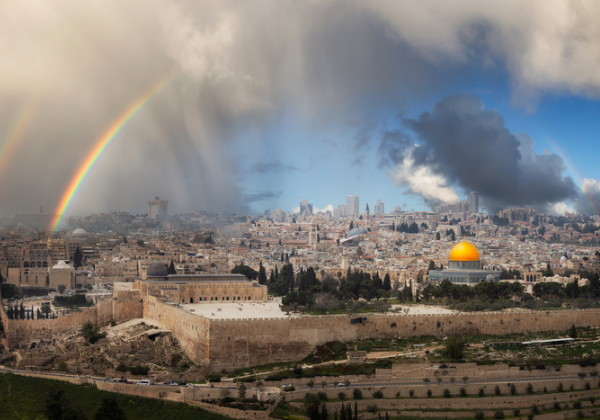

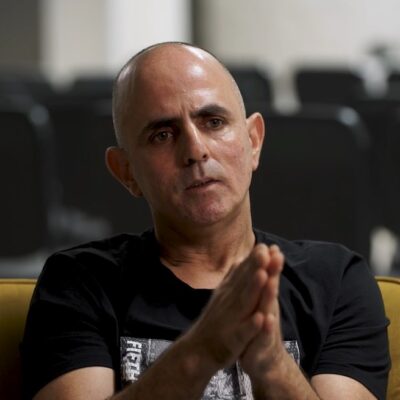
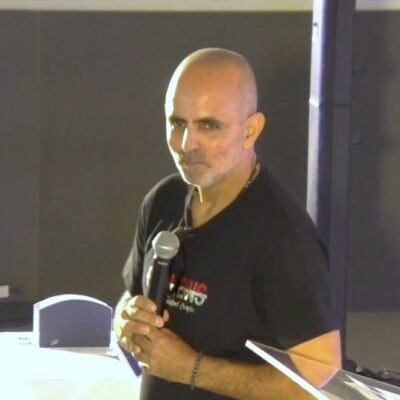

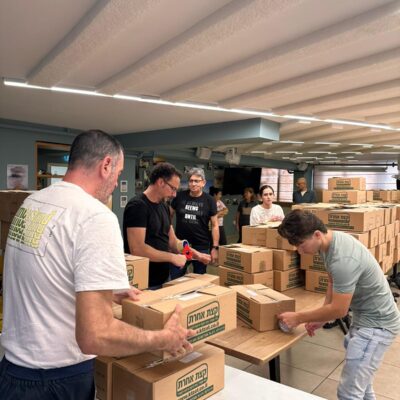
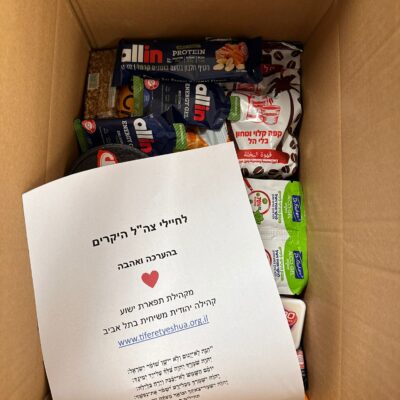
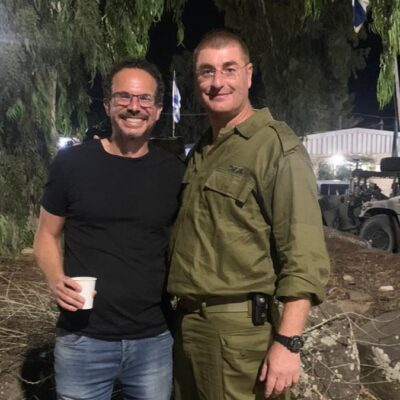
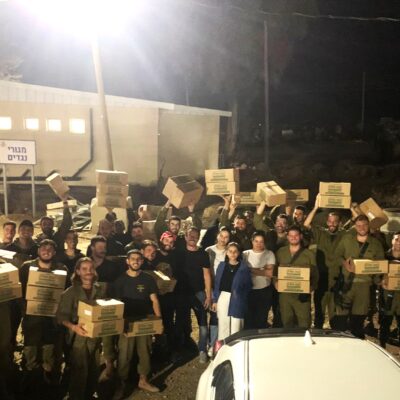



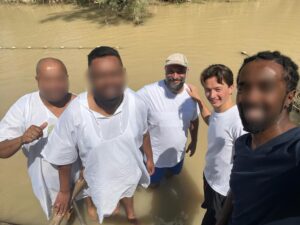


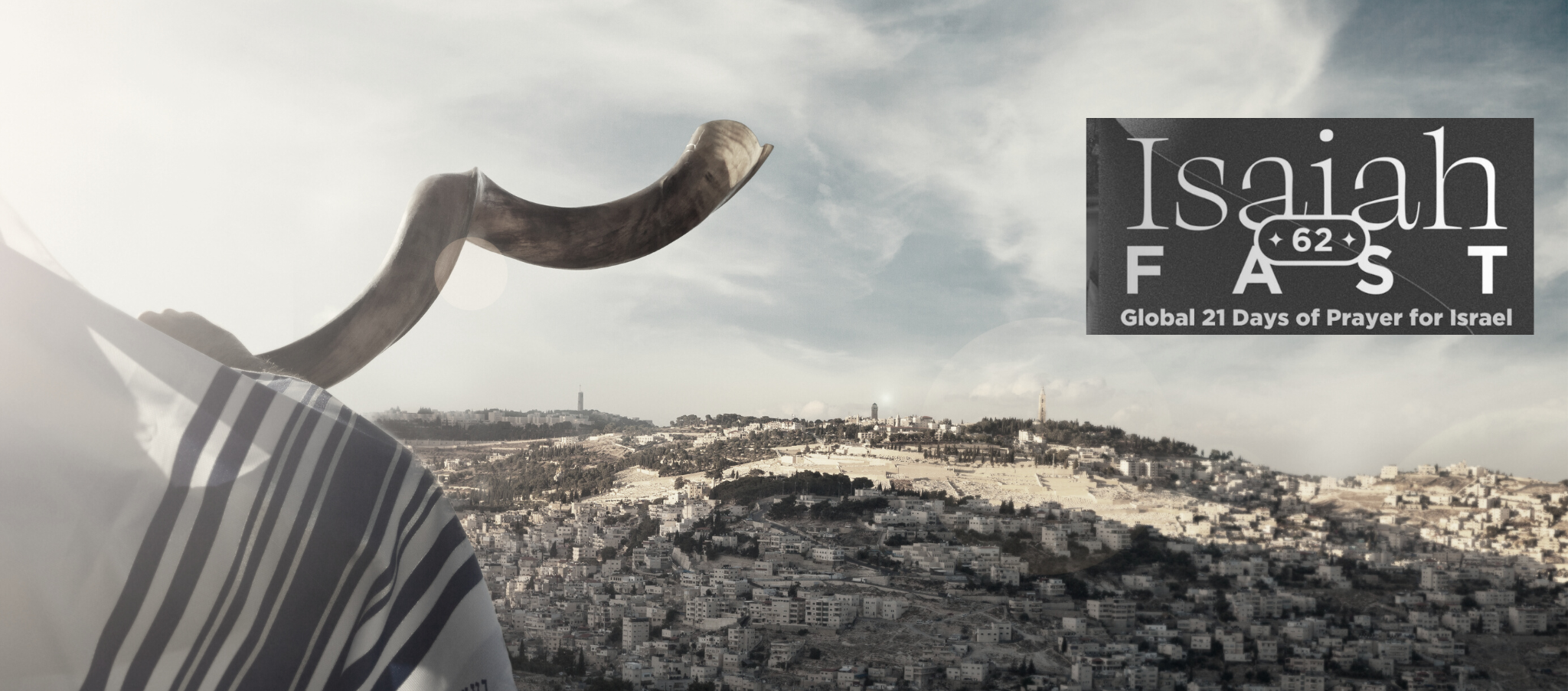

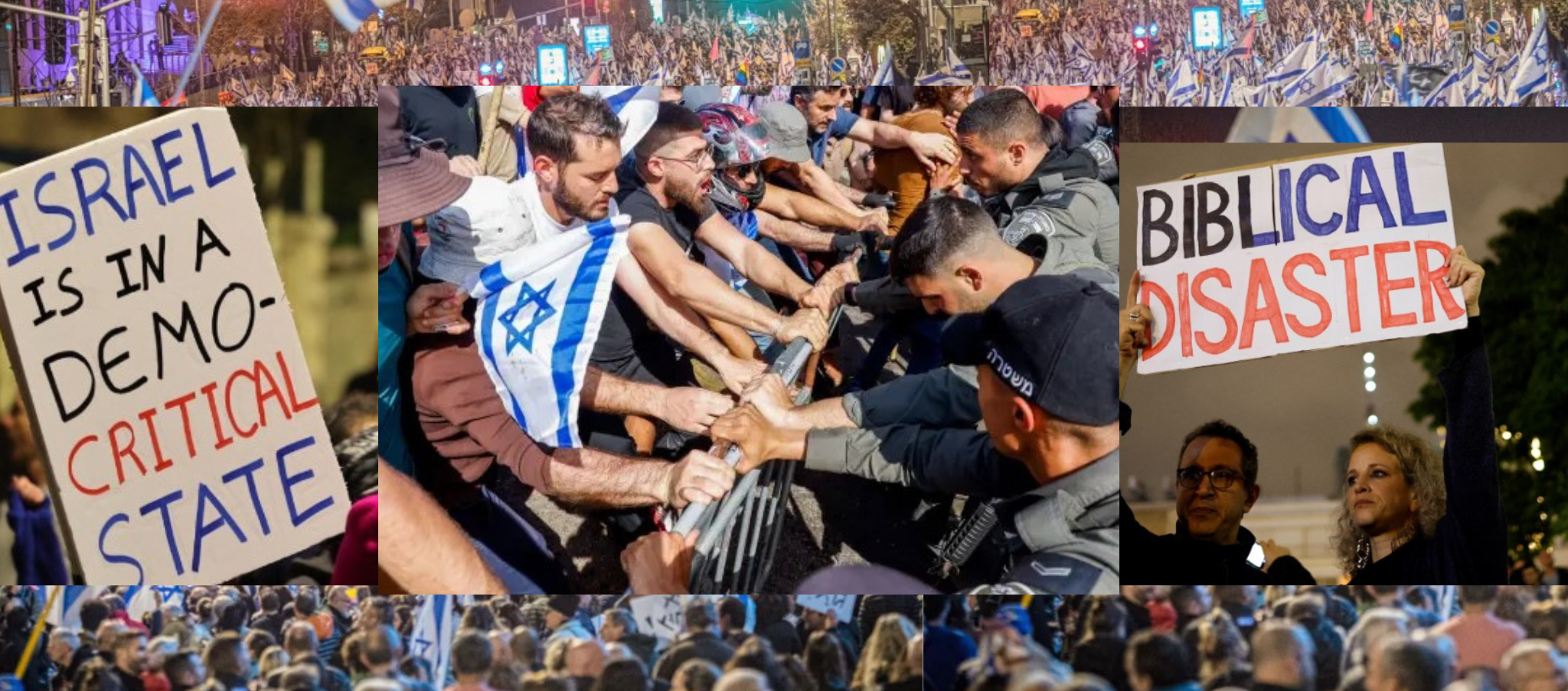

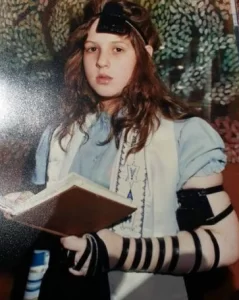 Deborah during her bat mitzvah ceremony in Argentina
Deborah during her bat mitzvah ceremony in Argentina